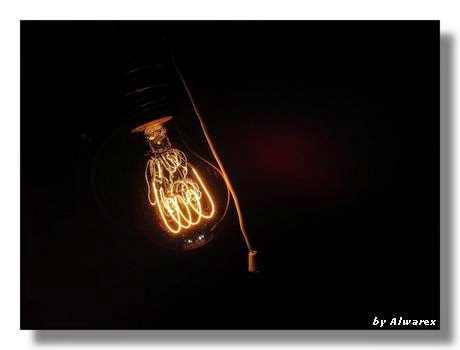In the early days of the month of August, in the midst of the war, members of the GIEP, the Israeli Society of the NLS, decided to meet and invited others interested in psychoanalysis to join. A decision made in haste, guided by a sense of necessity to speak in view of the events. Eighty people attended this evening. We hereby circulate a report, written by Mabel Graiver and Galia Weinstein.
Yves Vanderveken, President of the NLS.
Psychoanalysis and Subjectivity of our Times
On August 7th 2014, general public and members of the GIEP gathered for a discussion under the title: “Psychoanalysis and Subjectivity of our Times”. Two texts served us as a « cause »: “Racism 2.0” by Eric Laurent and Gil Caroz’s paper: “Moments of Crisis”. These two texts accompany us towards the upcoming NLS Congress. We were honored by the presence of Patricia Bosquin-Caroz, President of the ECF.
Sharon Zvili-Cohen, President of the GIEP, posed a question: « How to make room for speech during wartime? How to manage to say something that would not fall into a place of ideal and identification? » The School is what makes it possible to link psychoanalysis and the current times while, simultaneously, this question sustains the School. Sharon outlined the path which, following Hadar Porat’s proposal, allowed for this discussion on war invited by the School. Sharon gave the floor to the panel members: Hadar Porat, Gil Caroz, Shlomo Lieber and Samuel Nemirovsky.
Hadar Porat’s starting point was the shame that emerges in wartime, or in Freud’s words the lowering of aesthetics standards. From a close reading of Eric Laurent’s paper, Lacan’s L’étourdit and Miller’s Extimity, Hadar learned, on the one hand, that the roots of war lie in the fact that the jouissance of the other is Other in a real sense, and that paranoia has a real core; thus, psychoanalysts during wartime may provide a first-hand testimony of the real lodged in the jouissance of the other. On the other hand, what is uncanny is the resemblance encountered in the other’s reflection in the mirror, and that is where shame comes from.
Gil Caroz approached Sharon Zvili’s question through his reading of Eric Laurent’s paper. He uproots the question of racism from the realm of identifications. For the subject to enter discourse, he has to separate himself from that which in him is “non-human”, namely, jouissance. In order to do this, the subject localises jouissance in the other, and this has two consequences: the institution of the fantasy and the localization of the signifiers of identification in the place left empty by jouissance. Identification comes in place of the void left by jouissance on the side of the subject.
But racism is always present, from the very moment we speak, we are in meaning, in the collective. Psychoanalytic discourse has a certain knowledge of this, thereby making the psychoanalytic group a little less racist. Why? Because the subject in analysis knows something about his most intimate filth and this enables him to place a little less the jouissance within the other. At the level of identifications, it is possible to speak endlessly, without ever coming to an agreement. But in order to reach jouissance, it is necessary to think of speech as an act. He argued that “what makes it possible for us to meet here to talk and interact with one another is the pass as compass, in so far as the pass is an act which includes the radical recognition of our own filth of jouissance.
Shlomo Lieber gave us the essence of his thoughts with the title: « In times of war – an Israeli Summer 2014”. Shlomo stressed that: « Wars still, from time to time, encompass and dictate what we call “the subjectivity of our times” to the dismay and disappointment of us all… However, when the guns roar the muses are not the only ones who are silent: our discourse tends to also die down or get soaked in cold sweat… Even though we can certainly understand Freud’s repulsion of the issue of the prevention of war (in Why War? 1933) – because, all in all, for him it equals the impossible elimination of drive jouissance and of love, which is always intertwined with hatred-, yet I’m astounded by the massive silence, nearly a death silence within ourselves and our circles when it comes to the topic of war. »
Samuel Nemirovsky, the last speaker on the panel, stated that: “psychoanalysis teaches us that there are neither general paradigms with Universal principles that could erase the drive implicit in every action, nor paradigms which could justify them or our standpoints. Neither refined ethics nor natural ethics can do that. Anyone who believes to act out of a fabricated universal ethical position, more or less ad hoc, has nothing to offer to us but the narcissistic satisfaction of he who considers himself better than us. Only a prolonged, intensive and deep analytic work will make it possible for us to find a space free of ideals and identifications, or at least get closer to it, without paralyzing and confining the possibility of the act.
A lively discussion followed, from which we shall mention a remark by Marco Mauas, which concluded the gathering and perhaps marked the opening of a forthcoming discussion. Marco quoted Jacques-Alain Miller, who states that “men love war, as it’s where they can run away to from the desire of a woman”. While writing this report we approached Marco Mauas in order to locate this quote. “The Lacanian man… is a heavy being, encumbered, embarrassed by having. As he has something to lose, he is condemned to caution… The Lacanian man is fundamentally coward; and if he goes to war, it is to run away from women, to run away from the hole[1].
[1] Jacques-Alain Miller, Of Semblants in the Relation Between Sexes, Psychoanalytical Notebooks 3, Fall 199
Written by: Mabel Graiver & Galia Weinstein
Dans les
premiers jours du mois d’août, au beau milieu de la
guerre, les membres du GIEP, Société israélienne de la
NLS, ont décidé de se réunir en invitant d’autres
personnes intéressées par la psychanalyse à les
rejoindre. Une décision prise dans la hâte, guidée par
un sentiment de nécessité d’engager une parole face
aux évènements. Quatre-vingts personnes ont participé
à cette soirée. Nous en diffusons ici un compte-rendu,
rédigé par Mabel Graiver et Galia Weinstein.
Vanderveken, Président de la NLS
Au niveau des identifications, on peut justement parler beaucoup, sans cesse, sans jamais se mettre d’accord. Mais pour toucher la jouissance, il faut penser à une parole qui fait acte. Il indiquait que « si nous nous rencontrons ici pour parler, c’est grâce à la passe dont nous faisons notre boussole, car la passe est un acte qui inclut une reconnaissance radicale de notre propre saloperie de jouissance ».
Une discussion vive eut lieu ensuite. Nous ne mentionnerons seulement qu’une remarque de Marco Mauas, qui pourrait constituer l’ouverture vers une nouvelle rencontre. Il reprenait un dire de Jacques-Alain Miller précisant que les hommes aiment la guerre, parce qu’elle permet de fuir le désir d’une femme : » l’homme ‘lacanien’… est un être lourd, gêné, embarrassé par l’avoir. L’avoir est pour lui une gêne et, comme il a quelque chose à perdre, il est condamné à la prudence. L’homme lacanien est fondamentalement peureux. Et s’il va à la guerre, c’est pour fuir les femmes, pour fuir le trou. « (1)
1-. Miller J.-A., « Des semblants dans la relation entre les sexes », La cause Freudienne, Paris, Le Seuil/Navarin, n° 36, mai 1997, pp. 7-16.







